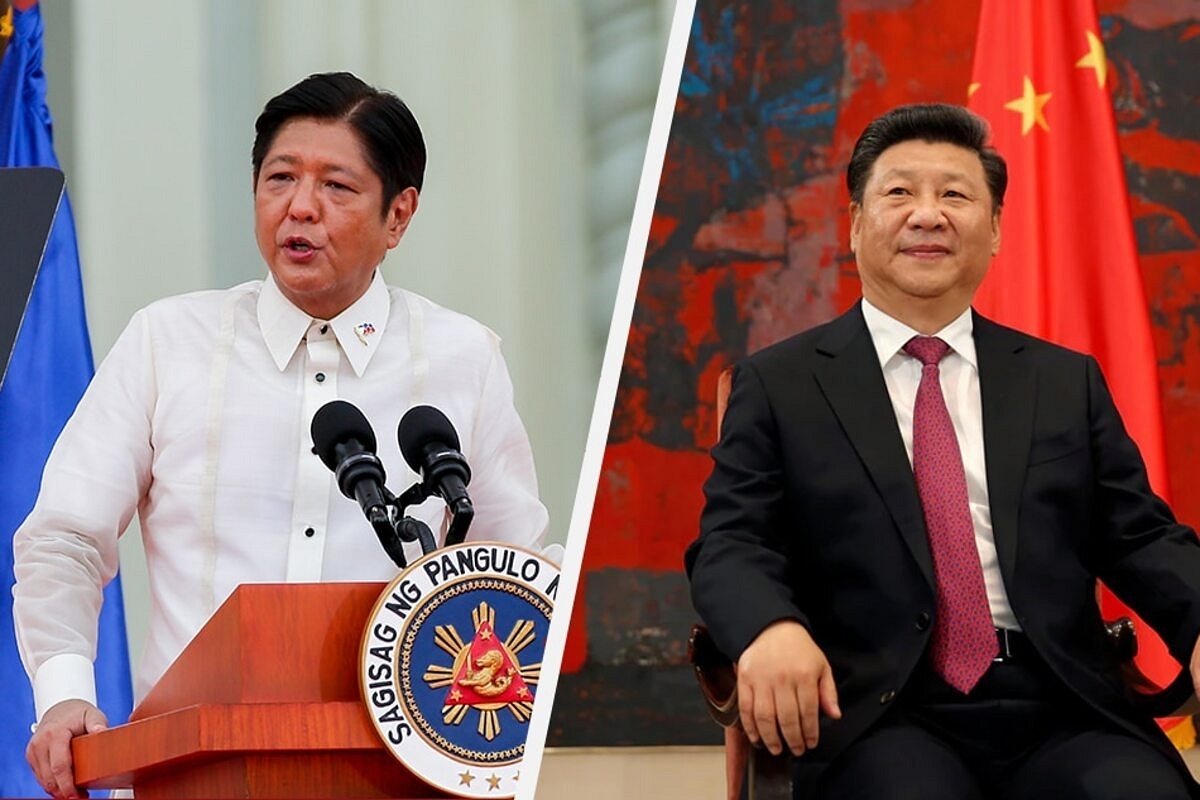Infrastructure
In Yet Another Blow To BRI, Philippines Abandons Big Chinese-Backed Infrastructure Projects, Turns To Japanese And Western Competitors

Philippine President Marcos Jr. and Chinese president Xi Jinping.
The recently concluded Belt and Road Initiative (BRI) summit in Beijing marked the 10th anniversary of the ambitious global infrastructure-building program, with 23 national leaders, including Philippine President Ferdinand Marcos Jr, in attendance.
At the event, Chinese President Xi Jinping announced close to $100 billion in new state policy bank financing for the BRI, emphasising the goal of creating a "global community of shared future."
However, the Philippines has taken a significant geopolitical turn by opting to terminate several major infrastructure projects backed by China in favor of Japanese and Western alternatives.
The Philippine Department of Transportation has officially declared the termination of these projects, raising questions about the future of China's investments in the Philippines. This move represents a dramatic shift in Philippine-China relations, departing from the pro-Beijing stance of the previous Rodrigo Duterte presidency.
Under President Duterte, China's engagement with the Philippines was criticized as "pledge trap" diplomacy, where China made promises of substantial investment in exchange for concessions in the South China Sea. However, the vast majority of these promised $24 billion in infrastructure projects failed to materialize.
The root of this shift lies in long-standing bilateral disputes over territories in the South China Sea. The recent dispute over China's harassment of Philippine resupply and patrol missions around the Second Thomas Shoal, where the Philippines maintains troops on a grounded ship, has exacerbated these tensions.
In the aftermath of a recent "collision" incident between a Chinese vessel and a Philippine resupply mission in the South China Sea, the Philippines had decided to cancel $4.9 billion worth of major Chinese infrastructure projects, specifically two railway initiatives on the northern island of Luzon and another on the southern island of Mindanao, which is the hometown of the former President, Rodrigo Duterte.
Manila is likely to axe several Chinese projects, including the Samal Island-Davao City Connector project, the Chico River Pump Irrigation Project, the New Centennial Water Source - Kaliwa Dam Project, the Philippine National Railways South Long Haul Project (PNR Bicol), the Mindanao Railway Project Tagum-Davao-Digos segment, and a closed-circuit television project in multiple cities across Metro-Manila.
Yet, experts are noting broader challenges within the BRI itself. Reports suggest that China's overall BRI-related activities have decreased by approximately 40% since their peak in 2018. This decline can be attributed to multiple factors, including reduced financing from Beijing, regulatory obstacles, and financial fragility in recipient nations.
A recent study conducted by Boston University revealed that while China provided partner nations with approximately $331 billion between 2013 and 2021, many of these recipients are grappling with significant debt distress. China has reportedly spent as much as $240 billion to rescue BRI recipient nations teetering on the brink of bankruptcy, most notably in the cases of Sri Lanka, Pakistan, and Laos.
These increased tensions in the South China Sea have coincided with a significant downturn in bilateral investment deals between China and the Philippines. Although trade between the two countries remains robust, with a trade deficit largely favoring Beijing, nearly all of China's infrastructure investment commitments made during the Duterte era are now at risk.
This shift in the Philippines' approach to the BRI reflects not only geopolitical considerations but also concerns over China's economic slowdown, property market crises, and challenges associated with investments abroad.
Support Swarajya's 50 Ground Reports Project & Sponsor A Story
Every general election Swarajya does a 50 ground reports project.
Aimed only at serious readers and those who appreciate the nuances of political undercurrents, the project provides a sense of India's electoral landscape. As you know, these reports are produced after considerable investment of travel, time and effort on the ground.
This time too we've kicked off the project in style and have covered over 30 constituencies already. If you're someone who appreciates such work and have enjoyed our coverage please consider sponsoring a ground report for just Rs 2999 to Rs 19,999 - it goes a long way in helping us produce more quality reportage.
You can also back this project by becoming a subscriber for as little as Rs 999 - so do click on this links and choose a plan that suits you and back us.
Click below to contribute.
Latest